Divan Turkish Kitchen | ||
| 918 South 22nd Street (at Carpenter)
Once you enter into the restaurant’s “Dergah” door, however, the smells bring spicy olfactory sensations, as if this portal were a nasal passage. From a mental minaret, a cerebrally self-created muezzin calls out a caterwauling caress. Patrons glow in the ceiling’s golden hanging lights, creating amber rutilant shadows on burnt almond-colored walls.
I The latter appetizer plate is replete with mounds of crushed and scented eggplant; cooked grape leaves filled and brimming with rice; cubes of eggplant in fresh tomatoes; drained Haydari yogurt; and a cup of minced red peppers dotted by walnuts and parsley. All of the above, to some degree, are punctuated with olive oil, lemon paste and pomegranate juice. The platter is redolent of garlic, dill, mint, pine nuts and currant. Tomato wedges and chopped lettuce chaperone. Taste buds are enveloped in servings as authentic as those at the finest cafes in Istanbul and Ankara.
The Karisik Izgara ($17.50), a mixed grill platter, seems required as an introduction to Divan’s entrees. A combo appears of Lamb Adana (char-grilled ground lamb flavored with red bell peppers), Kuzu Sis (grilled marinated chunks of lamb), Chicken Shish Kebab, Kofte (lamb and beef patties) and Doner Kebabs (ground lamb served on a vertical skewer). Char-grilling gives every morsel of lamb and/or chicken cross-hashed tenderness. Never, ever forget to order Kayseri Manti ($11.90), Turkish dumplings that rival Vetri’s gnocchi in sheer marvel. They simply and salaciously maneuver between the lust of your lips toward a place in your heart. A bowl arrives with little fanfare, steaming. Voluminous tiny pinched, pursed, silken plumps of homemade pasta-pouches proliferate. Their nudity is covered by well placed stripes of garlic yogurt sauce and mint. Each miniature parcel contains a nugget of specially spiced ground lamb the size of a baby pea. One tablespoon holds five of the dumplings, all of which you gobble, then groan. They glide past your teeth’s attempted grasps, dissolving into innocuous desuetude, but for an aftertaste that grabs and takes your breath away. Philadelphia seems to have become Aphrodisias as you swallow the full Manti’s filling. Allow me to tell you quickly that you should not order anything that is accompanied by “green salad.” Red onions are sliced and presented so abundantly therein that your whole table smells like a hastily made cheap hoagie. The chef should eliminate raw onions from his repertoire. On the other hand, allow me to tell you even more quickly that dessert should include at least four pieces of Baklava ($5.00/4). They are the best pieces of pistachioed honey in the city; to be devoured while drinking Turkish coffee just brewed with brutish ferocity. I’m not certain that the sister and brother owners, Fulya and Ilker Ugur, can contain their restaurant’s exuberance. They are young Turks who stay open noon to 11 p.m., 365 days a year.FULYA NON FOOLYA; SED FILLYA | ||
| Copyright 2007 Richard Max Bockol, Esq. | Back | |


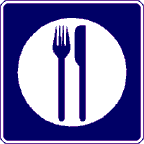
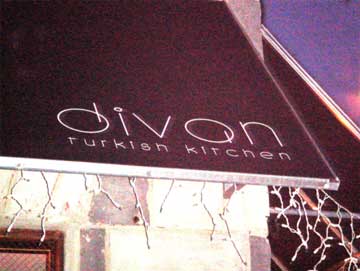 It’s the large corner building faced with faux-graystone-façade bricks. Culminating above the ground floor with dangling snowflake holiday lights, the edifice seems anything other than Turkish.
It’s the large corner building faced with faux-graystone-façade bricks. Culminating above the ground floor with dangling snowflake holiday lights, the edifice seems anything other than Turkish.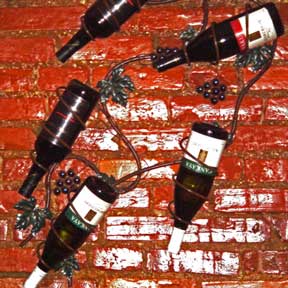 The dining room has, on its left, a tiled “eunuch bar” area followed by a varnished red brick wall. A wrought iron contraption is displayed thereon, to hold spiraling unorganized empty wine bottles. On the right are four silver-beaded sconces and a large rectangular fifteen paned window. A baker’s dozen tables are covered by rattan cloths, and surrounded by maroon-seated chairs. Divan may not be Topkapi Palace, but it certainly is as cozy as a sweet Turkish taffy wrapped in a thick Turkish towel.
The dining room has, on its left, a tiled “eunuch bar” area followed by a varnished red brick wall. A wrought iron contraption is displayed thereon, to hold spiraling unorganized empty wine bottles. On the right are four silver-beaded sconces and a large rectangular fifteen paned window. A baker’s dozen tables are covered by rattan cloths, and surrounded by maroon-seated chairs. Divan may not be Topkapi Palace, but it certainly is as cozy as a sweet Turkish taffy wrapped in a thick Turkish towel.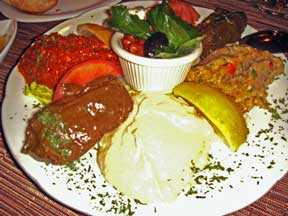 f you’re among friends and want to immediately sample ample tastes and textures, order (1) the Falafel ($9.50) and (2) the Karisik Meze Tabagi, a mixed appetizer plate ($11.50). The former is an unusually dense blend of chickpeas, celery and carrots, ground together with Anatolian spices. The mashed balls are fried to a crusty crispness. Four such concoctions, topped with white creamy tahini sauce, circle a hummus-laden mini-bowl. The epidermis of each Falafel seems almost crustacean to one’s tongue, but then scatters when your mouth salivates in the midst of the coarsely pureed vegetables. Your palate is soaked in the pluvial sauce.
f you’re among friends and want to immediately sample ample tastes and textures, order (1) the Falafel ($9.50) and (2) the Karisik Meze Tabagi, a mixed appetizer plate ($11.50). The former is an unusually dense blend of chickpeas, celery and carrots, ground together with Anatolian spices. The mashed balls are fried to a crusty crispness. Four such concoctions, topped with white creamy tahini sauce, circle a hummus-laden mini-bowl. The epidermis of each Falafel seems almost crustacean to one’s tongue, but then scatters when your mouth salivates in the midst of the coarsely pureed vegetables. Your palate is soaked in the pluvial sauce.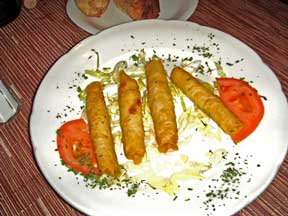 I won’t mention here the fried calamari ($6.50), the grilled octopus ($8.50) nor the feta cheese Borek Turkish cigars ($5.00), except to say that you should not miss any of them on subsequent visits.
I won’t mention here the fried calamari ($6.50), the grilled octopus ($8.50) nor the feta cheese Borek Turkish cigars ($5.00), except to say that you should not miss any of them on subsequent visits.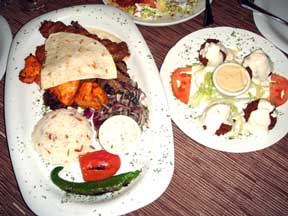 The oblong chunks and carved cubes are bristling in smokiness. Succulent to a fault.
The oblong chunks and carved cubes are bristling in smokiness. Succulent to a fault.